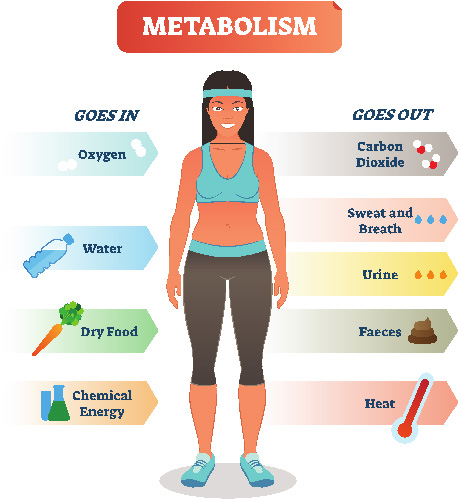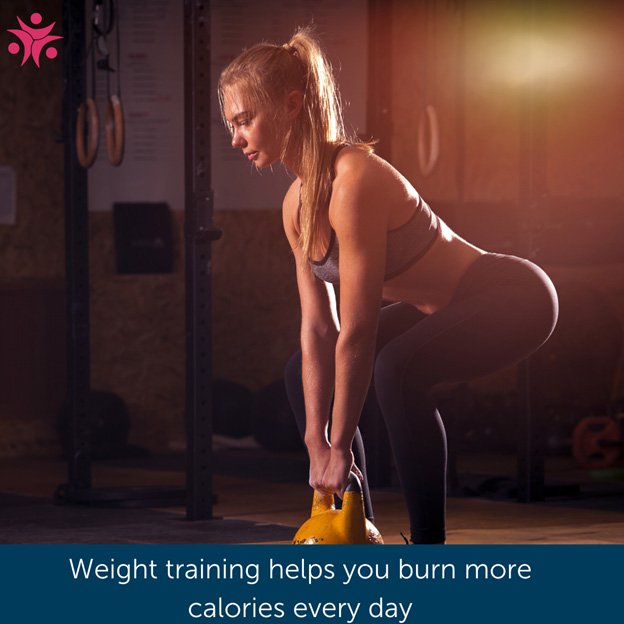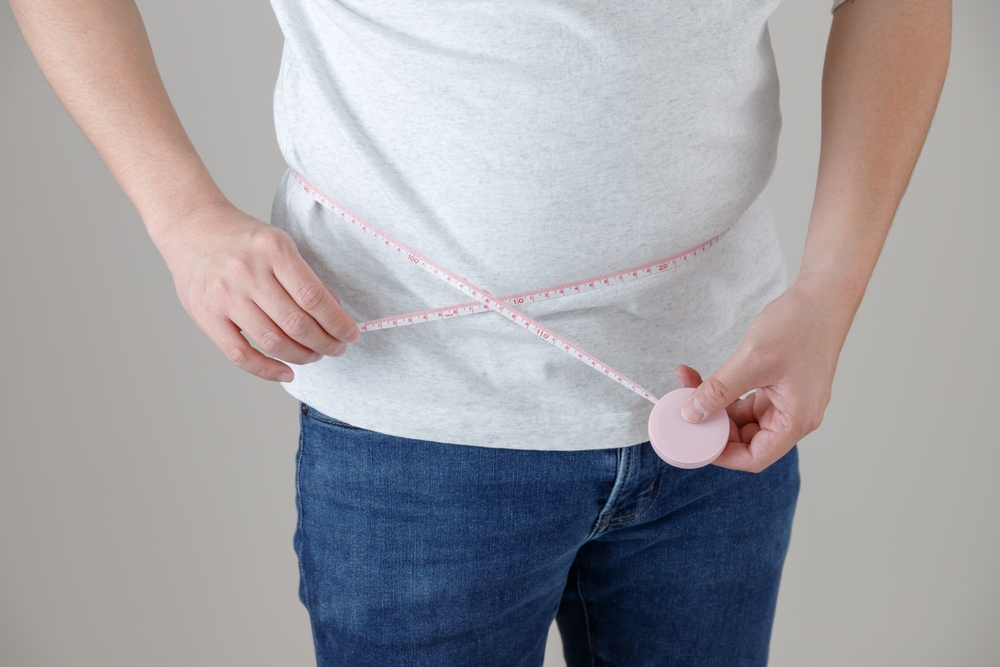Make an Appointment
A fast metabolism seems to be what everyone is looking for. Here, we’re exploring what your metabolism is, whether or not fast and slow metabolisms even exist, and how to improve yours.
What is metabolism?
Our body is constantly performing chemical reactions to perform necessary functions like digestion, breathing, and cell replication. A generalised metabolism definition is simply the combination of all of those chemical reactions.
As you might imagine, these chemical reactions require energy to come from somewhere. Each of us has a minimum amount of energy that our body requires to maintain these functions known as the basal metabolic rate (BMR) and our BMR can account for anywhere between 40 and 70% of our body’s energy requirements.
Therefore, a fast metabolism is actually referring to a fast BMR which can fluctuate based on age, activity level, and other factors.
Can you really have a fast or slow metabolism?
It’s true - some people have faster BMRs than others based on their age, gender, genetics, size, and more. What you eat and how much you exercise can also affect your BMR.
Overall, people with more muscle mass tend to have faster metabolisms. Muscle cells require more energy to maintain than fat cells do, meaning your body require that your MBR be higher.
That’s why our metabolism gets slower as we age since we gradually lose some of our muscle mass. It’s also why men typically have a faster metabolism than women because they biologically have a higher muscle to fat ratio.
Genetic defects and medical conditions like hypothyroidism, metabolic syndrome, or Cushing’s syndrome can also lead to a faster or slower metabolism although the genetic implications on MBR is still widely misunderstood.

What happens to your body when your metabolism speeds up?
When your basal metabolic rate increases, your body simply burns more energy at rest. You’ll notice:
- Higher calorie burn even when you’re not active, which can help with weight management.
- Increased heat production, so you may feel warmer or sweat more easily.
- Faster energy turnover, meaning you can often recover more quickly between meals or workouts.
- Enhanced nutrient utilisation, as your organs and cells process food more efficiently.
In short, a speedier metabolism puts your body into a slightly higher gear, turning fuel into fuel for your day-to-day functions as well as any extra movement or exercise.
Is it good to speed up your metabolism?
Generally, yes, up to a point. A moderately higher BMR can support healthy weight control, better energy levels and improved exercise performance. However, artificially driving your metabolism too high (for example, through excessive stimulants or extreme dieting) can backfire:
- Excessive heat or sweating can lead to dehydration.
- Nutrient depletion if you’re burning calories faster than you replenish them.
- Hormonal disruption, as chronic over-stimulation may impact thyroid and stress hormones.
The goal is a sustainable “metabolic boost” that aligns with balanced nutrition, regular exercise and adequate rest, so you reap the benefits without unintended side-effects.

How to Speed Up Metabolism
Understanding that our lifestyles can affect how fast or slow our metabolism operates, you’re probably wondering how to increase your metabolism to lose weight and burn more calories.
Before we begin, it’s important to note that blaming your unhealthy habits on a slow metabolism isn’t based on any real facts. People who are overweight often actually have faster metabolisms than thinner people because it takes your body a lot of energy to maintain all that excess weight.
Instead, we should choose to feel empowered by the idea that we are in control over some aspects of our metabolism instead of pointing the finger at our MBRs as an easy way out of taking responsibility for our own health.
So, what can we do to speed up our metabolism?
Strength training: As previously mentioned, muscle cells require more energy to maintain. So, it makes sense that strength and resistance training to build more muscle will help to increase your metabolism.
One study measured participants' resting metabolisms during 24 weeks of weight training. In men, weight training led to a 9% increase in resting metabolism. The effects in women were smaller, with an increase of almost 4%
Link to research article HERE
Make daily tasks more active: Take the stairs instead of the lift. Do your own chores instead of hiring help. Walk to the shops if you live within a few blocks or ride a bike to work instead of driving. These ideas are especially helpful if you work in a sedentary job by taking active breaks like going for a walk during your lunch break instead of eating at your desk.
Eat well and regularly: Our bodies love regularity so a great way to balance your metabolism is to eat on a regular schedule. Soon enough your body learns how much energy it can expect from foods and when. Additionally, eating a high protein diet can help increase your metabolism since protein requires a decent amount of energy to digest. Also, spicy foods and plenty of B vitamins are also recommended. All in all, avoid crash diets and opt to eat well and on a regular basis.
Drink green tea and plenty of water: Green tea and black coffee are great beverage options because the hit of caffeine can help boost your metabolism while still being better for you than other sugary drinks. But overall, nothing beats water and drinking plenty of it can increase your metabolism by allowing your body to work at its best.
Reduce stress: When we feel stressed, our bodies produce the hormone cortisol. Cortisol is related to your appetite and can cause eating issues, whether in the form of over- or undereating. Again, it’s important to eat regularly and stick to a healthy diet full of protein and our stress levels can severely impact our eating habits.
Sleep: These days, the value of sleep is sorely underestimated. Lack of sleep is an epidemic as our culture puts more and more emphasis on being “busy” and glorifying the notion that “I’ll sleep when I’m dead.” Poor sleep affects our hormones and our decision-making skills which are both related to our metabolism. Experts suggest getting 7 to 9 hours of sleep per night.
Other Useful Resources
How Many Coffees A Day Is Too Much?
Weight Training For Athletic Performance
Weight Training Or Cardio For Weight Loss?

Frequently Asked Questions (FAQs)
1. Can certain foods really boost metabolism?
Yes, high-protein foods (lean meats, beans, dairy) require more energy to digest, temporarily raising your metabolic rate. Spicy foods containing capsaicin and drinks like green tea or black coffee can also give a modest metabolic “kick.”
2. Does age dramatically slow my metabolism?
Metabolism does tend to decrease with age, largely due to gradual muscle loss, but you can counteract this by maintaining or increasing your muscle mass through strength training and staying active.
3. How much muscle do I need before seeing a metabolic benefit?
Even small gains in lean muscle mass, around 1–2 kg, can meaningfully raise your basal metabolic rate. Regular resistance training and adequate protein intake are the fastest routes to build that extra “calorie-burning” tissue.
4. Are metabolic supplements safe and effective?
While some supplements (e.g., green-tea extracts, caffeine) can provide short-term boosts, they’re no substitute for healthy habits and may carry side-effects in high doses. Always discuss any supplement use with your GP or a qualified health professional.
5. Does poor sleep really affect metabolism?
Absolutely. Sleep deprivation disrupts key hormones (leptin, ghrelin, cortisol) that regulate hunger and energy use, often leading to slower calorie burning, increased appetite and impaired recovery from exercise.

Your metabolism isn’t a fixed destiny, it’s an adaptable system you can influence with balanced nutrition, regular resistance training, strategic activity, stress management and restorative sleep. By adopting these sustainable habits, you’ll support a healthier basal metabolic rate, more energy throughout the day and improved long-term wellbeing.
Take the Next Step:
Ready to turn knowledge into action? Physio Inq can help you build a metabolism-boosting plan tailored to your goals. Our services include:
- Exercise Physiology for personalised strength and conditioning programs
- Physiotherapy to optimise movement patterns and prevent injury
- Occupational Therapy to integrate healthy activity into your daily routines
-
Call us on 1300 731 733 or book an appointment online to start your journey toward a faster, fitter metabolism, and a healthier you.

Date Published: Saturday, January 2, 2021
Locate a Mobile Exercise Physiology
Service Near me
Get the experience & convinence you deserve to support your or a loved one's allied health needs.
Our Mobile Exercise Physiology team are currently serving & taking appointments in the following states and regions in Australia:
Need to get into direct contact with ur Client Services team? We're all ears. Call our team directly on 1300 731 733









